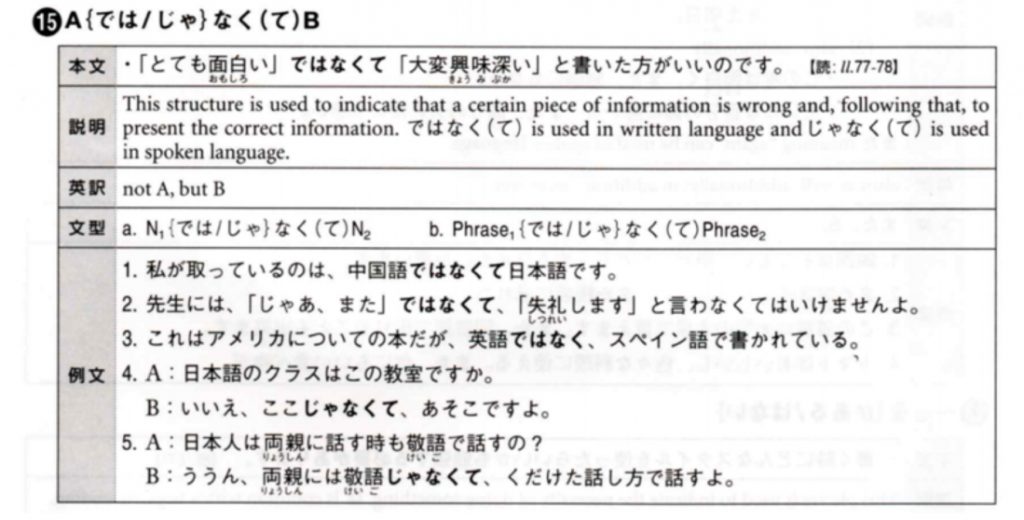上級へのとびら CH2−7(本文6) + Futon by Katai Tayama
今日の雑談
田山花袋「布団」 – “Futon” by Katai Tayama
キーワード:
世代(せだい)– generation
自然主義文学(しぜんしゅぎぶんがく)– naturalism literature
状態(じょうたい)– condition
観察(かんさつ)-to observe
変態(へんたい)– pervert
ありのまま – the way it is
礼儀知らず(れいぎしらず)– do not have manner
妄想(もうそう)– to fantasize
嗅ぐ(かぐ)to smell
悶々とした(もんもんとした)– my heart is pounding in my chest
貢献する(こうけんする)– to contribute
脱線する – to get sidetracked / originally it means “train left the track”
田山花袋は、1872年生まれなので、太宰治や三島由紀夫などよりも40年くらい早い世代です。
Katai Tayama was born in 1872, so his generation is about 40 years earlier than Dazai Osamu or Yukio Mishima.
田山花袋の作品は、自然主義文学ですが、田山はフランス文学からその自然主義文学を学んだようです。自然主義文学とは、物事の自然な状態を観察してありのままに書くことです。
His writing is described as naturalism literature, though, Tayama learned it from French literature. Naturalism literature means that the writers write stories “as is” or “be myself, not somebody else”.
私は1800年代のフランス文学については知らないのですが、どういう自然主義だったのでしょうか?フランス文学に詳しい方、教えてください。
I don’t know a lot about French literature in 1800’s. What kind of naturalism was it? If you understand French literature please teach me.
田山花袋の代表作といえば、1907年に出版された「布団」ですが、これまた何がそれほど評判になったのかというと、「変態性」です。
His well-known writing is Futon which was published in 1907. It was popular because of his “pervert”.
隠さずにありのままを書いたら、変態だった、ということでしょうか。
Is it like when he wrote about the way he is without hiding anything, he is a pervert?
なるほど、それで谷崎潤一郎や三島由紀夫を代表として、変態性を隠さない文豪の作品が次々に世に出たのですね。
I understand why many books without hiding their perverted side by famous writers such as Junichiro Tanizaki or Yukio Mishima were published one after another.
当時としても、その「布団」の変態性はかなりのセンセーションを巻き起こし、日本文学にとって大きな意味を持った、と言われています。
Futon was a phenomenon as it’s a perverted story, and it is said that it had a great effect on Japanese literature.
布団のあらすじは、こうです。
The story goes like this.
ある中年ののと文豪のところに10代の若い娘が弟子入りしてきました。彼女は美人で、熱心にその作家を尊敬し、才能もありました。
A young teenage girl came to a famous middle aged writer to be his apprentice. She is beautiful, admires the writer enthusiastically, and on top of that, had the talent to be a writer.
作家には妻子がいましたが、この若い女性を好きになってしまいます。
The writer has wife and child, however, he falls in love with her.
しかしやがて彼女に彼氏ができてしまいます。彼氏は頼りなく礼儀知らずな男でした。
However, she gets a boyfriend eventually. He is not reliable and does not have manners.
色々と考えた末、彼女は田舎に帰ることにしました。文豪は、自分に妻子がなかったらどうだったのだろう、と妄想をし、後悔をします。そして彼は彼女が去って行った後の部屋に行き、こっそり彼女の布団やパジャマのにおいを嗅ぎます。
After contemplating for a while, she decides to go back to her hometown. The writer is wondering what could have happened if he did not have a wife and child and then regrets. Then, he goes into her room after she leaves, and secretly smells her futon and pajamas.
おじさんが、10代の女の子の布団やパジャマの匂いをスーハー、スーハー、と嗅ぐ。。。
Middle aged man smelling a teenager’s futon and pajamas…
これが自然主義か。。。今の私の頭に、「アナと雪の女王」のこの音楽が流れました。
Is it naturalism…Suddenly music from “Ana and the Snow Queen” (more popularly known as “Frozen” to English speaking audiences) pops into my head.
「ありの〜ままの〜姿みせ〜るのよ〜。」
“Be yourself. Not somebody else”.
オリジナルの英語版では、「力を解き放とう!みんなに背を向けてピシャリとドアをしめよう」なんですが、日本語訳は「ありのままの姿見せるのよ。ありのままの自分になるの〜。」ともっと謙虚な感じに訳されています。
The original lyrics in English are, “Let it go, let it go, turn away and slam the door,”however, in the Japanese version, the lyrics are “Be yourself, not somebody else” which is a more modest way to express the original meaning.
言葉を訳すのは、文化も考慮しないといけないんですね。英語のままだと言葉が強すぎて、日本では合わないようです。
I realized we have to consider the cultural context when we translate to foreign languages. The English meaning is too strong to fit Japanese culture.
話が脱線しました。すみません。
I am sorry. Let’s get back on track.
布団の主人公は彼女とはプラトニックな恋愛でしたが、そんな悶々とした若い娘に恋する中年男の生々しい気持ちを描いています。そして、それとは対照的なのが、飄々といつも落ち着いている奥さんです。
It was platonic love for the main character of Futon, though, he expresses how the middle aged man fell in love with young girl without hiding anything.
やはりこれも田山の私小説らしく、実際にその娘や彼氏のような人物はいました。この「布団」が有名になり、彼らにも影響があったそうです。
Futon seems to be Tayama’s autobiography. There were people like the young girl and her boyfriend in real life. Futon became famous and had an effect in their life somehow.
田山花袋は、女子高生くらいの若い女の子に恋をしていたらしく、「少女病」という小説の中でも中年男性には妻子がいながら、妻には興味を持たれず、10代の女の子をストーカーして、うっとりしすぎて線路に落ちて、電車に引かれて死ぬ、という話です。
Tayama seems to have fallen in love with a high school girl. In his another of his writings, Shoujo Byou (“Girl Disease”) a middle aged man has a wife and child, though his wife is not interested in him, and he stalks a teenage girl. One day, he gets absorbed in her beauty and falls in the train track where a train hits and kills him.
とにかく、田山花袋が「ありのままの姿を見せた」ので、谷崎潤一郎や三島由紀夫も続いたのかもしれません。
Anyways, Katai Tayama did “be myself, not somebody else”, so I guess Junichiro Tanizaki and Yukio Mishima followed.
銀行員とヤクザは紙一重。天才と変態も紙一重。
There is only a fine line between banker and yakuza.
There is also only a fine line between genius and pervert.
やっぱり、日本文学に貢献した人ですね。
After all, he is the one who contributed to Japanese literature.
上級へのとびら CH2−7(本文6)
書くスタイルは、何を書くか、誰が読むかによって使い分けなくてはいけないため、どのスタイルを選ぶかだけでなく、言葉の選び方も大切です。
Since it is necessary to use different written styles depending on what you write and who your reader is, it is not only important to choose which style, but also to choose which words you use.
例えば、「だ体・である体」の論文では「すごく面白い」とか「とても面白い」ではなくて「大変興味深い」と書いた方がいいのです。
For example, in a paper or thesis written in da style/de aru style, it is better to write taihen kyomibukai (very interesting) than to write sugoku omoshiroi or totemo omoshiroi.

(1) What I’m taking is Japanese, not Chinese.
(2) You need to say “Shitsurei Shimasu’ to a teacher, not “Ja mata”.
(3) This is a book about the US, but it’s written in Spanish, not English.
(4)
A: Is this the room for the Japanese class?
B: No, it’s not here; it’s over there.
(5)
A: Do Japanese people use keigo when they speak to their parents, too?
B: No, they use casual speech, not keigo.
それは「すごい」や「とても」より「大変」の方が、そして「面白い」より「興味深い」の方が書き言葉的だからです。
That is because taihen and kyomibukai are more typical of written language than sugoi, totemo, and omoshiroi.
書く時には書くスタイルに合った書き言葉的表現、そして、話す時には話すスタイルに合った話し言葉的表現があることを覚えておいて下さい。
Be sure to remember that when writing there are certain words and phrases used just for written lanugage, and when speaking there are certain words and phrases used just for spoken language.
